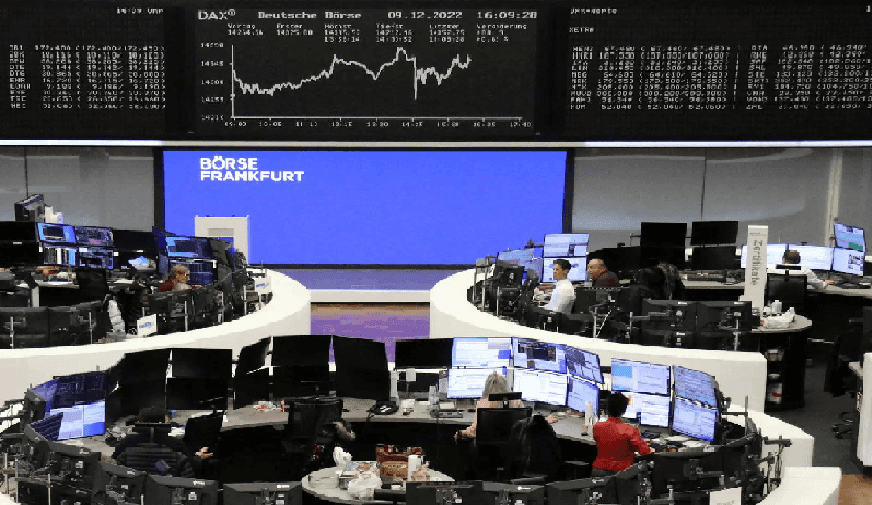European Stocks Reach 5-Week High Amid Spain Election Jitters
Key Highlights
• Spanish stocks find themselves at the mercy of a one-week low after an intense and momentous election.
• The Eurozone faces the growing intensity of a business downturn as July unfolds, a development that draws both concern and speculation - a PMI report at the center of it all.
• Witness Julius Baer's triumphant climb after the release of their H1 results, a feat that has everyone talking and wondering what lies ahead.
European equities reached a five-week high on Monday, buoyed by optimistic earnings and the belief that the European Central Bank (ECB) is nearing the end of its rate-hike cycle. However, these gains were dampened by losses in Spanish stocks after the country's general election resulted in no clear winner.
Spain's benchmark IBEX index (.IBEX) experienced a 0.8% drop, hitting a near one-week low following the election results. With neither the left nor the right bloc able to form a government easily, the outcome pointed to a political gridlock, leaving investors feeling uncertain and nervous. Consequently, Madrid-listed utilities, which had priced in a victory for right-wing parties, saw declines, with Endesa (ELE.MC) and Iberdrola (IBE.MC) falling by 3.1% and 0.5% respectively. The gauge of Spanish lenders (.IBEXIB), including Banco de Sabadell (SABE.MC), Banco Santander (SAN.MC), and Caixabank (CABK.MC), also fell by 1.6%.
"Markets seem to have been caught off guard, having expected a more definitive outcome. In the short-term, the uncertainty will weigh on Spanish assets as investors wait to see what kind of coalition emerges or whether a new election is required," commented Chris Beauchamp, chief market analyst at IG.
In contrast, the pan-European STOXX 600 (.STOXX) managed to edge up 0.1%, reaching a five-week high. A survey revealed that the downturn in eurozone business activity deepened more than anticipated in July, driven by a decline in demand within the bloc's dominant services industry and a fall in factory output at the fastest pace since COVID-19 first took hold.
However, these numbers raised hopes that the ECB may not need to aggressively hike interest rates to control inflation. "It does give the ECB some cover, but with eurozone CPI continuing to come down from its highs, they already have the backdrop for a more dovish tone this week," added IG's Beauchamp.
While markets have already priced in a quarter percentage point increase in interest rates to 3.75% by the ECB later this week, the course of action after July remains uncertain.
Bavarian Nordic's Vaccine Programme Ends, Stock Tumbles
Bavarian Nordic (BAVA.CO) saw a significant decline of 21.7% after the Denmark-based company announced the termination of its respiratory syncytial virus (RSV) vaccine programme.
Philips Faces Challenges Due to China's Drive for Self-Sufficiency
Dutch health technology company Philips (PHG.AS) experienced a slide of 6.2% as it expressed concerns over China's efforts to achieve self-sufficiency in health-related technologies.
Julius Baer Reports Impressive H1 Net Profit Increase
Swiss private bank Julius Baer (BAER.S) enjoyed a climb of 7.8% following its report of an 18% increase in net profit for the first half of 2023.
Vodafone Group Thrives with Strong Q1 Growth
Boosting the telecom sector, Vodafone Group (VOD.L) rallied 4.3% after reporting an acceleration in first-quarter top-line growth, driven by strong demand in Britain and improvements in Germany, Italy, and Spain.











Discussion